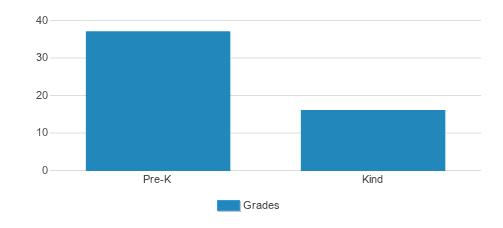Hollow Reed School's philosophy is that children learn through doing and experiencing in a family atmosphere.
Our goal is to offer a developmentally appropriate, multicultural education, serving the needs of the whole child.
We consider the child's physical, emotional, spiritual and social as well as cognitive needs in planning our curriculum.
We include an emphasis on music, art, story telling and drama.
Our objective is to provide a safe, happy and harmonious environment for the children under our care and to offer opportunities for them to cultivate friendships and to learn skills in language arts, reading, math, physical education, science and the arts.
School Overview
School Type
Religious Affiliation
Grades Offered
Grades Prekindergarten-Kindergarten
Student Body
Total Students
51 students
Student Body Type
Co-ed
% Students of Color
8%
State avg.: 31%
Students by Grade

Academics and Faculty
Total Classroom Teachers
3 teachers
Student-Teacher Ratio
17:1
National avg.: 13:1
Tuition and Acceptance Rate
Admission Deadline
None / Rolling
Source: National Center for Education Statistics (NCES)
Frequently Asked Questions
When is the application deadline for Hollow Reed School?
The application deadline for Hollow Reed School is rolling (applications are reviewed as they are received year-round).
Recent Articles

Financial Aid 101 for Private School Families 2026
Guide to private school financial aid in 2026, with current costs, key planning timelines and practical steps parents need to maximize aid options.

Why Extracurricular Activities Matter in 2026
Discover why extracurricular activities remain essential in 2026, with updated research, costs, and admissions insights for parents and students.

How to Appeal for Financial Aid After Admission
Learn how to appeal for financial aid after admission to a private school, with expert steps, timelines, and 2026 updates for families.





